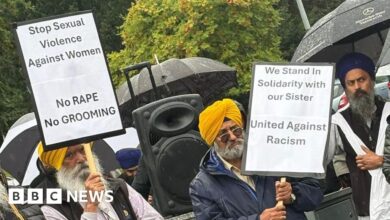How to halt a cough-syrup addiction
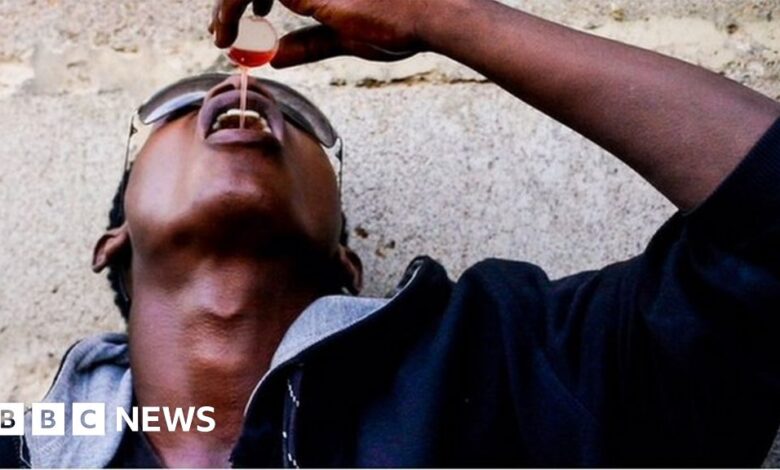
A BBC investigation into the illegal sale of an addictive opioid has triggered sweeping reform across Nigeria and beyond.
Within 24 hours of the broadcast of Africa Eye’s documentary, which exposed how individuals in some of Nigeria’s largest pharmaceutical companies were selling codeine-based cough mixture straight from doors of their factories to drug dealers, the syrup was banned.
Here are five other repercussions since the film Sweet Sweet Codeine was aired in May:
1. Millions of bottles recalled
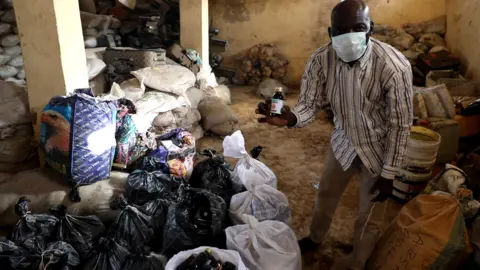
This is a major victory for anti-drugs campaigners and a major financial loss for pharmaceutical companies, who previously sold the product for as much as 3,000 naira ($8; £6) a bottle.
Once the recall is complete, the Nigerian government will accumulate a stockpile of addictive drugs worth millions of pounds.
It is not yet known how they will dispose of it, although many tonnes of syrup seized from the black market have been burnt in the past.
2. Arrests and fugitives
Dozens of arrests have occurred since the Nigerian government banned codeine cough syrup. Many of them pharmacists and small-time dealers.
In one raid in Kwara State, a focal point of the BBC’s investigation, 17 people were arrested attempting to smuggle cartons of syrup to Kaduna. In another series of raids in Katsina, 21 university students were arrested for possession of 128 bottles of codeine.
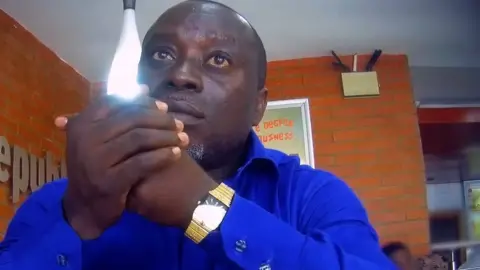
An arrest warrant has been issued for Chukwunonye Madubuike, the former Emzor Pharmaceuticals Business Development Executive implicated in the BBC’s investigation, but he remains missing and on the run. He was also sacked by Emzor.
3. Ghana ban
The film is also having an impact in other African countries.
Shortly after the BBC unearthed black market dealing of codeine syrup by pharmaceutical companies in Nigeria, the Pharmacy Council of Ghana launched an investigation into the abuse of codeine and another painkiller, Tramadol.
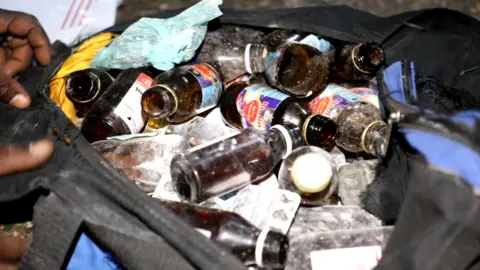
The investigation reviewed 35 pharmacies and discovered significant levels of consumption in city of Kumasi.
In June 2018, as part of the country’s National Medicines Policy review, Health Minister, Kwaku Agyeman-Manu announced all production and importation of codeine syrup would also be banned in Ghana.
4. Public screenings
Members of the public and NGOs have been screening Sweet Sweet Codeine across Nigeria, attracting vast crowds.
A Nigerian Senate report last year said young women were particularly vulnerable to addiction. In the mainly Muslim north of Nigeria alcohol is restricted and cough syrup had become the toxin of choice.
More than 2,000 women attended one screening in Keffi in northern Nigeria in June.
Allow Twitter content?

At another screening in Kaduna on 29 July, more than 4,000 university students reportedly gathered to watch the documentary and debate how to tackle drug addiction.
Mairo Mandara, former Nigeria representative for the Bill and Melinda Gates Foundation, has organised many of these events and is leading the fight to end all codeine addiction in the country.
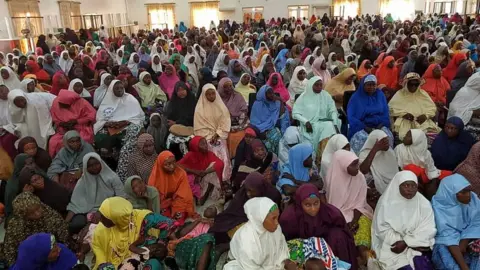
She says Africa Eye’s investigation played a crucial role in spurring on the country’s war on opioids.
“Sweet Sweet Codeine was tipping point for our campaign to ban codeine cough syrup in Nigeria, it was the climax,” she said.
”I have literally been called up by at least 100 women, girls and boys seeking help [since the ban].
“We are still running viewing sessions across the country in schools, mosques, churches and youth service camps.”
5. Jail for possession
When the Nigerian government initially banned codeine cough syrup in May, it was done via a health ministry directive.
In the past, those caught in possession of codeine or Tramadol faced no censure.
Now individuals are liable to jail terms of up to two years and fines of more than million naira ($5,500; £4,260) for possession and related offences.

According to Nigeria’s drug enforcement agency, 20% of the world’s illegally trafficked Tramadol was seized last year in Nigeria.




